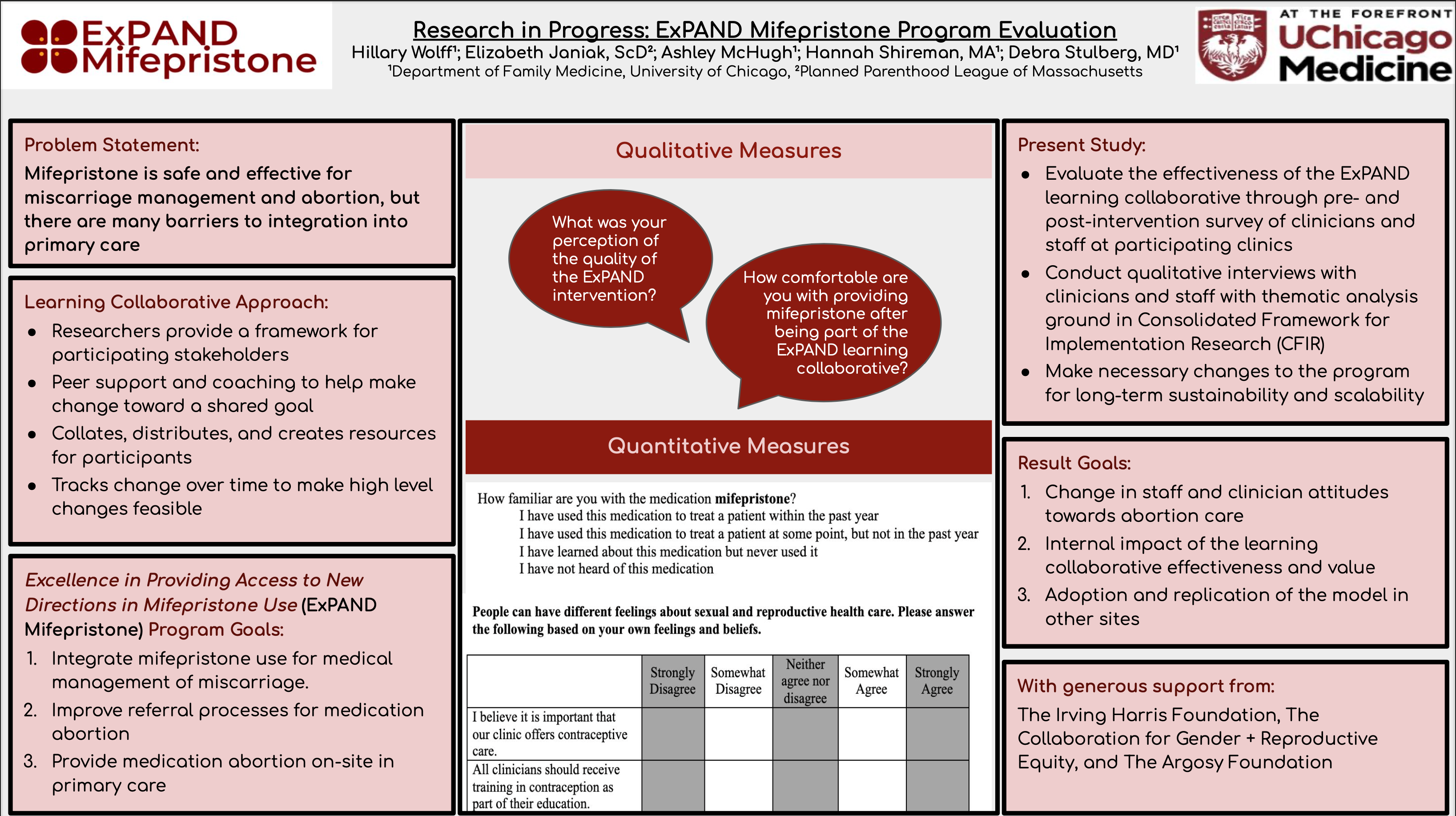PRP033: ExPAND Mifepristone Evaluation
Hillary Wolff, BS; Debra Stulberg, MD; Elizabeth Janiak, ScD; Hannah Shireman; Ashley McHugh
Abstract
Context: Mifepristone followed by misoprostol is the most effective regimen for patients who desire medical management of early pregnancy loss or induced abortion. This regimen is safe, effective, and acceptable in primary care settings, but its uptake has been limited due to barriers at the policy and practice level. Specifically, mifepristone is restricted by the Food and Drug Administration, which requires provider certification and patient consent beyond the normal processes used for other prescription medications. The ExPAND Mifepristone learning collaborative was thus established to target institutional and logistical barriers to mifepristone use. The current study is examining the effectiveness of the ExPAND Mifepristone learning collaborative and how it can improve and be implemented into more clinics in the future. Objective: The aim of this research is to determine the effectiveness of the current ExPAND Mifepristone pilot learning collaborative and evaluate how to make implementation scalable and determine long-term sustainability. Study Design: This study uses a mixed methods implementation assessment guided by the CFIR framework. The methods for this research involve semi-structured interviews with up to 40 internal stakeholders. Clinicians and staff will also complete pre-participation and post-participation surveys, and we will assess changes in practice patterns within each organization regarding management of early pregnancy loss, counseling and referral for patients seeking abortion, and provision of abortion care. Population Studied: Two participating FQHCs in the Chicago land area that provide early pregnancy loss care. Intervention: In the pilot of the learning collaborative, clinics received individualized action plans and available legal and medical resources to increase their self-efficacy in providing mifepristone in their clinics, while assessing institutional barriers and creating solutions for providing care. Outcome Measures: We will assess changes in knowledge, attitudes and practice patterns in providing mifepristone in FQHCs. Results and Expected Outcomes: We hope this learning collaborative proves to be a useful approach to bringing mifepristone to clinics, improving referral processes for medication abortion, and providing medication abortion on-site in primary care while boosting clinician and staff confidence in their ability to provide this care.

Debra Stulberg
stulberg@uchicago.edu 11/20/2021Great job, Hillary! Poster viewers: If you know of primary care practices/clinics that are beginning to offer mifepristone for early pregnancy loss and/or medication abortion (or even considering it), we'd love to hear from you!